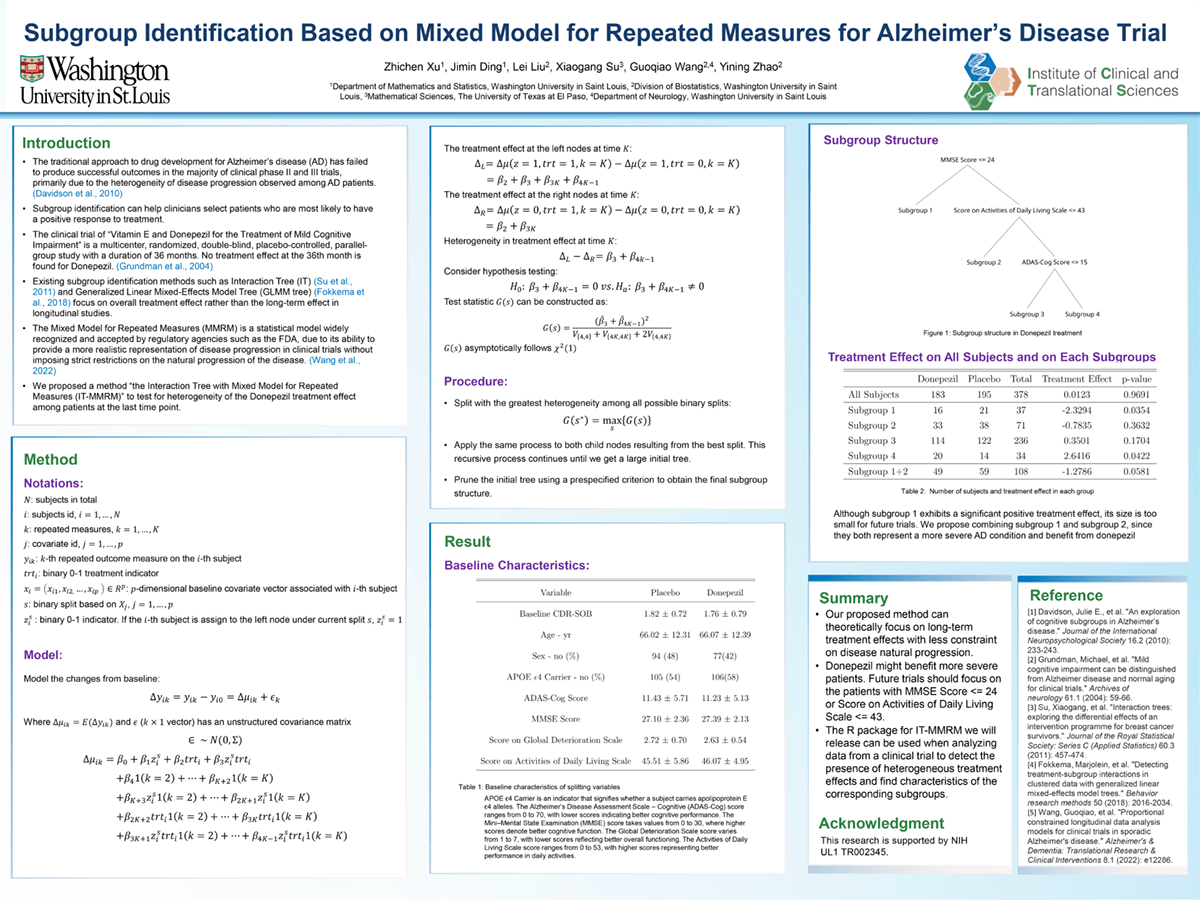
Introduction: Many studies have shown that the progression of Alzheimer’s disease (AD) varies substantially from patient to patient. It is important to identify subpopulations who may benefit from the investigational treatment. Subgroup identification can help clinicians select patients who are most likely to have a positive response to a treatment. It may also inform the development of new therapeutic agents that can improve the treatment of AD.
Methods: We propose a Mixed Model for Repeated Measures Interaction Tree (MMRM-IT), building on the assessment of the treatment-by-covariates interactions. MMRM-IT can automatically seek subgroups of individuals in whom the treatment shows heterogeneous effects. We apply this method to analyze the data from the clinical trial of “Vitamin E and Donepezil for the Treatment of Mild Cognitive Impairment”, a multicenter, randomized, double-blind, placebo-controlled, parallel-group study with a duration of 36 months.
Results: Patients with a Score on Activities of Daily Living Scale less than or equal to 45 may benefit from a Vitamin E treatment. Patients with an MMSE Score less than or equal to 24 or a Score on Activities of Daily Living Scale less than or equal to 43 may benefit from a Donepezil treatment. Subsequent experiments could be conducted on these people to further verify this effect.
Impact: We constructed and will release the R package for MMRM-IT. This algorithm can be used when analyzing data from a clinical trial to detect the presence of heterogeneous treatment effects and to find characteristics of the corresponding subgroups. Subsequent large-scale trials can enroll patients who meet the characteristics of these subgroups with positive effects.
Organization: Washington University in St. Louis
Xu Z, Ding J, Liu L, Su X, Wang G, Zhao Y